Posted on 3/28/2025

Living in Honolulu means year-round sunshine, salty ocean air, and occasional tropical rain showers—all of which can take a toll on your car. Island driving may not involve extreme cold or long highway commutes, but the unique climate and road conditions in Hawaii present their own set of challenges. Whether you’re cruising down Kalakaua Avenue or navigating the winding roads to the North Shore, keeping up with vehicle maintenance is key to ensuring a reliable and long-lasting ride. Here’s what you need to know about maintaining your car in Honolulu’s unique environment. Combatting the Effects of Salt Air and Humidity The ocean breeze may be refreshing, but the salt in the air can lead to premature rust and corrosion on your car’s body, undercarriage, and even engine components. Regular washing is one of the best ways to prevent salt buildup, especially if you live near the coast or frequently park in open areas. Applying a protective w ... read more
Posted on 2/28/2025
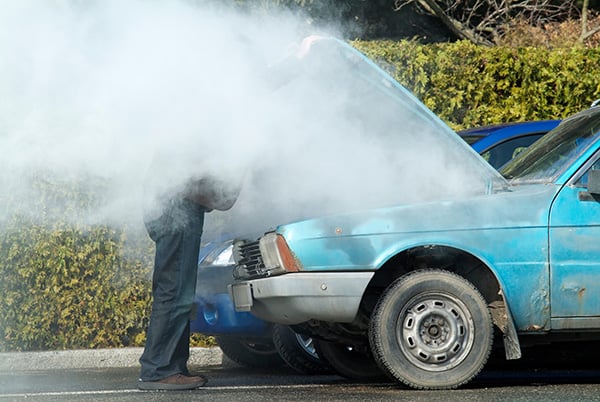
A car that overheats is more than just an inconvenience—it can lead to costly repairs and even long-term engine damage if not addressed properly. Whether you're stuck in traffic or driving long distances, temperature spikes under the hood can quickly turn into a serious problem. Overheating is a common issue, especially in warmer climates where high temperatures put extra strain on your vehicle's cooling system. Fortunately, there are several steps you can take to keep your engine running at the right temperature and avoid breakdowns. Keep an Eye on Coolant Levels Your engine's cooling system relies on coolant, also known as antifreeze, to regulate temperature and prevent overheating. Low coolant levels are one of the leading causes of overheating, as the system won't be able to properly dissipate heat. Checking coolant levels regularly and topping them off as needed can help ensure your engine stays within a safe operating range. It’s al ... read more
Posted on 1/31/2025
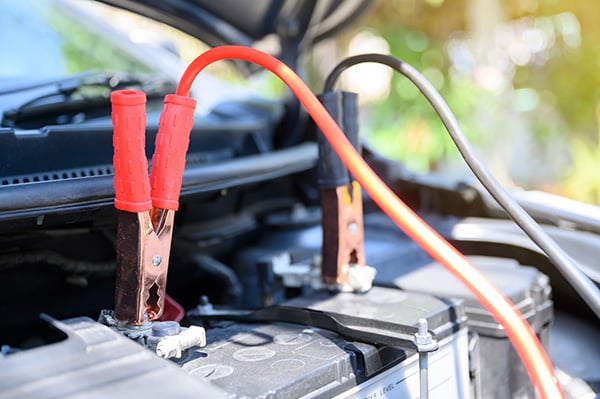
If you’ve ever been stuck with a car that won’t start, you know how important a reliable battery is. It’s the heart of your vehicle’s electrical system, providing the energy to get your engine running and power all the accessories we often take for granted. But just how long can you expect a car battery to last before it’s time for a replacement? Typical Lifespan of a Car Battery On average, a car battery lasts about three to five years. This range depends on various factors, including the type of battery, your driving habits, and the climate where you live. In a place like Honolulu, HI, the tropical weather can take a toll on your battery. Heat is one of the biggest culprits in shortening battery life because it accelerates the chemical reactions inside the battery. While your car may be parked in the shade or a garage, the ambient temperature still contributes to wear and tear over time. Signs Your Battery May Be on Its Way O ... read more
Posted on 12/20/2024
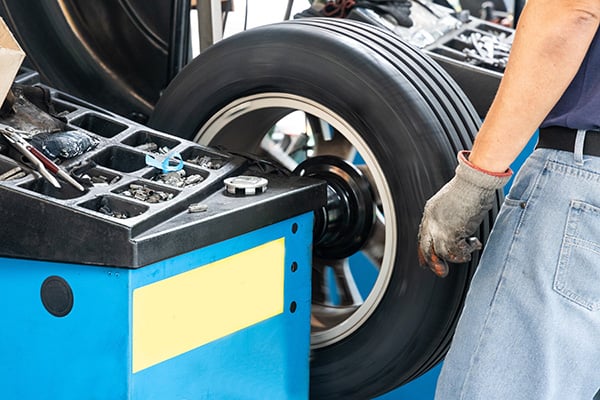
Your car’s tires are the only parts of your vehicle that touch the road, making them essential for your safety and performance. Yet, it’s easy to take these hardworking components for granted. Whether you’re commuting daily, heading on a long road trip, or just running errands around town, your tires play a key role in your car’s handling, braking, and fuel efficiency. To keep your vehicle performing at its best, understanding and staying on top of essential tire services is a must. Tire Maintenance Proper tire care is about more than just prolonging the life of your tires—it’s about ensuring your vehicle remains safe and efficient. Worn-out or poorly maintained tires can lead to reduced traction, longer stopping distances, and even blowouts, all of which put you and others at risk. Regular tire services don’t just save you money in the long run; they also provide peace of mind every time you hit the road. Tire Rotat ... read more
Posted on 11/29/2024
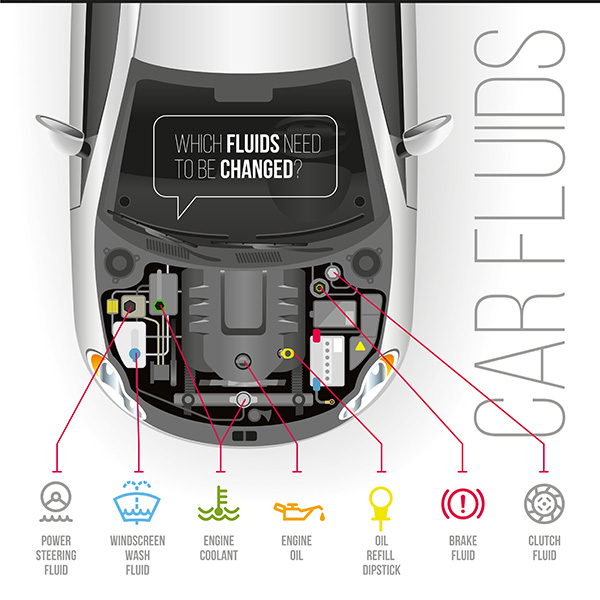
Taking care of a car goes beyond just the engine and exterior. Many owners don’t realize that various essential fluids run through their vehicles, each maintaining a smooth, safe ride. When one of these fluids is low or becomes contaminated, it can impact the vehicle's performance, safety, and longevity. Understanding which fluids need attention and how often can save you from costly repairs. So, let’s explore the six fundamental fluids every car owner should know about and why they’re so essential for a healthy, well-functioning vehicle. 1. Engine Oil Engine oil is arguably the most important fluid in your car. It serves as a lubricant for the engine's moving parts, minimizing friction and helping to prevent wear and tear. Additionally, it plays a part in temperature control, carrying heat away from the engine components and helping maintain optimal performance. Over time, engine oil can break down and become less effective, which is why re ... read more
Posted on 10/31/2024
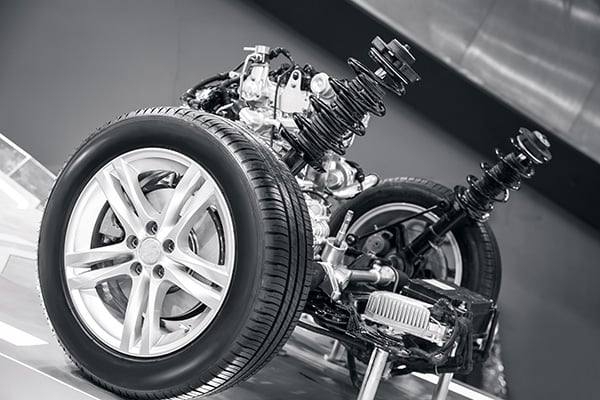
If you've ever driven a car that feels more like a bouncy castle than a smooth ride, there's a good chance your shock absorbers are on their way out. Shock absorbers are a vital part of your vehicle’s suspension system, designed to control the impact and rebound movement of your car. But what happens when they wear out? Are there real safety concerns involved? 1. What Do Shock Absorbers Do To understand why worn shock absorbers are a safety risk, you first need to know what they do. Shock absorbers help manage the motion of your car's springs and suspension. They prevent excessive bouncing and swaying by controlling the energy created by the springs when you hit a bump or pothole. Think of them as the part that keeps your car steady and balanced on the road. Without them, your ride would be a lot less controlled. Shock absorbers don’t just improve comfort. They also play ... read more
Posted on 9/27/2024
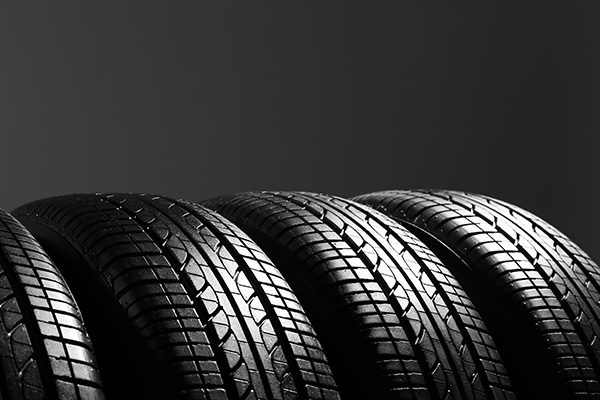
When it comes to maintaining your vehicle, tire care is often one of the most overlooked aspects. However, tires play a significant role in your car's performance, safety, and fuel efficiency. While many drivers may be tempted to replace just one tire at a time, it's recommended to replace tires in pairs or sets of four. But why is that the case? Uneven Tire Wear and Why It Matters Tires naturally wear out over time due to the constant friction they endure while making contact with the road. However, they don't all wear out at the same rate. The front tires, for example, typically wear down faster than the rear ones, especially on front-wheel-drive vehicles, since they handle the brunt of the steering and braking. If you only replace one tire, you introduce a tire with more tread depth alongside an older, worn tire. This uneven tread can lead to imbalanced handling, poor traction, and an overall unsafe driving experience. Replacing tires in pairs ensures ... read more
Posted on 8/30/2024
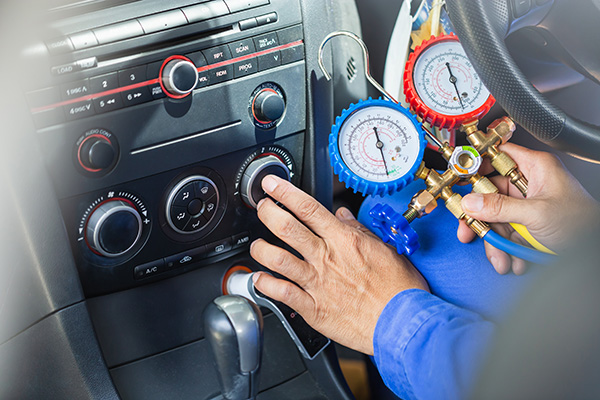
Have you ever stepped into your car on a blazing summer day only to find that the air conditioning isn't working? While you might consider fixing it yourself, seeking professional service for your car's AC is necessary. Certified technicians not only ensure the correct diagnosis and repair but also handle refrigerants safely, prevent potential damage, preserve your vehicle's warranty, and guarantee your comfort and safety. Here's why trusting experts with your car's AC is the wisest choice. Ensuring Proper Handling of Refrigerants Refrigerants are the lifeblood of your car's AC system, but they can be tricky to handle. Incorrectly managing refrigerants can lead to leaks, reduced efficiency, or even complete system failure. Furthermore, many refrigerants are environmentally hazardous and require careful handling and disposal. Certified technicians are trained to handle these substances safely and in compliance with environmental regulations, en ... read more
Posted on 7/26/2024
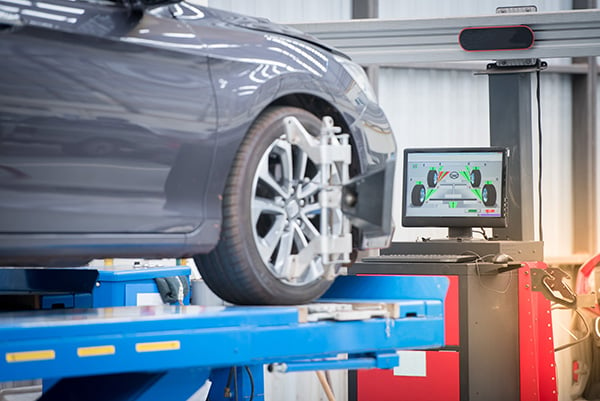
When your car feels like it's pulling to one side or your steering wheel vibrates, it's likely a sign that your car's alignment is off. But how exactly does this happen? Understanding the causes of misalignment can help you prevent it and ensure a safer drive. We will explore the various ways cars lose alignment, how to spot the signs, and what you can do to maintain proper alignment. What is Car Alignment Alignment is a crucial aspect of car maintenance that affects the vehicle's handling, tire wear, and overall safety. Proper alignment ensures that your car's wheels are perpendicular to the ground and parallel to each other, providing optimal contact with the road. Misalignment can lead to uneven tire wear, poor handling, and increased fuel consumption. Common Causes of MisalignmentHitting Potholes and Curbs One of the most common causes of misalignment is hitting potholes or curbs. These impacts can jar the ... read more
Posted on 6/28/2024

Hawaii is a dream destination for many, with its stunning beaches, lush landscapes, and unique culture. However, one aspect that often surprises visitors is the high cost of rental cars. If you've ever wondered why renting a car in Hawaii is so expensive, you're not alone. We will explain the reasons behind these high prices and explore what you can do to manage your transportation costs. High Demand and Limited Supply The basic economic principle of supply and demand significantly influences Hawaii's rental car prices. The islands are a major tourist destination, attracting millions yearly visitors. The demand for rental cars skyrockets during peak travel seasons, such as summer, winter holidays, and spring break. Unfortunately, the supply of rental cars is relatively limited. Hawaii's remote location means that increasing the supply of rental vehicles isn't as straightforward as it might be on the mainland. Logistical Challenges and Shi ... read more